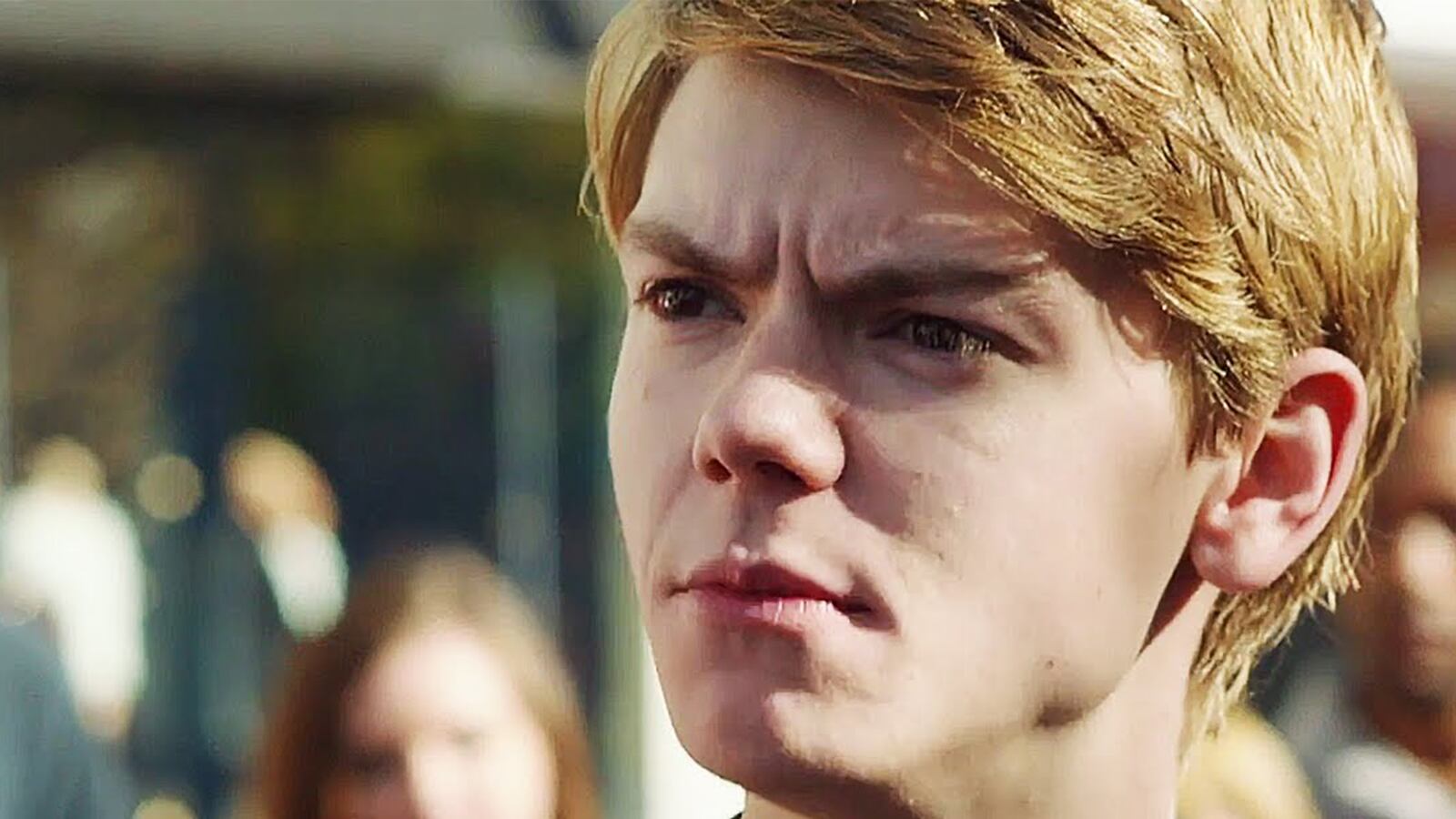Whenever pop culture addresses notions of representation, its responses range from dismissive antipathy to patronizing acquiescence.
The film industry’s male overrepresentation limits the stories and perspectives that would express themselves given a more equal participatory distribution.
So it is refreshing to see Antonia Bogdanovich, daughter of storied Hollywood director Peter Bogdanovich, direct a film like Phantom Halo, where women are represented as human beings and men are analyzed with the objective scrutiny masculine storytellers have proven themselves incapable of.
“There are much less women working than men, period, in this business and I think it’s starting to change a little bit,” Antonia tells The Daily Beast.
Her father, who serves as producer of Phantom Halo and whose credits include The Last Picture Show, The Sopranos, and Mask, agrees. “It’s because we’re living in a patriarchal system,” says Peter. “Men are in charge of the movies. Male movie stars. Male studio heads. Male directors. It’s very slanted toward men.”
A child of Hollywood, Antonia has lived most of her life on movie sets or in the public eye. Her mother is the late Polly Platt, a legendary writer and producer on classic films including Terms of Endearment, Say Anything…, and Bottle Rocket, who Peter met while working for B-movie master Roger Corman. Platt also helped bring The Simpsons to life after she discovered Matt Groening’s “Life in Hell” cartoon in a free Santa Monica newspaper and brought it to James L. Brooks, then-producer of The Tracey Ullman Show. Brooks hired Groening to create a series of animated shorts which ultimately became The Simpsons.
“When Bart was on the cover of Rolling Stone, we have a copy, framed, that Matt signed to my mother saying, ‘None of this would have happened if it wasn’t for you,’” Antonia says.
In addition to his own storied past, Peter is also connected to Hollywood history. When asked about the mysterious death of silent film icon Thomas Ince, about which Peter wrote and directed the movie The Cat’s Meow, he says, “That was the story that Orson [Welles] had told me. He had gotten it from Charlie Lederer, who was Marion Davies’s nephew.”
Antonia agrees, saying, “Peter and I have talked about this. I think it probably happened [like it does in the movie]. We’ll never know but the press can be manipulated even now.”
Family has played an important role in Antonia’s life and in the shaping of Phantom Halo.
The film tells the story of three men, con artist Warren Emerson (Sebastian Roché) and his two sons. The younger of the sons, Samuel (Thomas Brodie-Sangster), supports the family with street performances of Shakespearean soliloquies, while his brother Beckett (Luke Kleintank) lifts wallets from the crowd. Their father steals anything they earn and pisses it away on gambling or drinks.
“The older brother is based on me,” Antonia says. “And the younger is based on my sister. Ultimately, when you have trouble in the home and it’s not coming from the siblings, the siblings either get closer or farther apart. Me and my sister went through that. When we were really little, we weren’t very close, and then as things got more difficult in our teens, we got very close. Now me and my sister are very dependent on each other. We share a bond.”
Brodie-Sangster and Kleintank’s portrayals of the brothers Samuel and Beckett are also inspired from some of Antonia’s adolescent friends. “A few of my friends… robbed houses,” she says. “They didn’t pick pockets, they did other things. Shoplifting. Different forms of robbery. Not armed robbery.”
The brothers look out for each other, but also for their father. Despite countless incidents of abuse, abandonment, and disappointment, Beckett won’t leave the old man behind—a trait Antonia attributes to codependence.
“Children of alcoholics don’t leave that easy.” Antonia said. “There’s a line in the movie where the son says, ‘If I’m not there, I don’t know what he’ll do.’ There’s a feeling you have as a child or a young adult that if you’re not there, [the parent is] going to die. Or that if you’re there, maybe they’ll stop drinking. Even if you get away from it physically, it takes a long time to disassociate yourself from that kind of relationship. They’re dependent on each other, too.”
The Emerson boys’ lives are constantly shadowed by the loss of their mother. Beckett’s hopes of saving the family are perhaps motivated by that loss, as he later begins a sexual relationship with his business partner’s mother, Ms. Rose (played by Rebecca Romijn).
“I think he’s trying to find the mother he lost,” Antonia says. “They relate to each other because they’re both in tragic situations…But I also think she and Beckett fell in love because even though he’s younger, he’s a complicated individual. They relate to each other.”
Roché plays family patriarch Warren Emerson, who has trained his boys to appreciate Shakespeare and fear his mercurial temperament. Antonia describes the character as irredeemable.
“I told Sebastian that the character couldn’t have redemption,” she says. “It’s really important that you don’t have redemption, because there is no redemption for a person like that.’
A love of Shakespeare gives the film both the majority of its narrative allusions and its violent resolution. The Emersons are threatened by loan shark Roman (Gbenga Akinnagbe) and gambler Smashmouth (Tobin Bell). When Warren once again undoes all his sons’ hard work to provide for the family, Smashmouth arrives at the family home for an explosive showdown.
“We did [the scene] in two days,” Antonia said. “And everything was hand held. We shot half of it one day, and half of it another day. [Director of photography Gavin Kelly] and I did a lot more dolly shots and tripod shots at the beginning. The camera is locked down. But as the movie goes on and becomes more chaotic, so did the camera. I panicked the whole two days that we weren’t going to get all the shots, but we did it. Especially with the blood, too. That was stressful.”
Looking ahead, Peter’s next release is She’s Funny That Way, a screwball comedy starring Jennifer Aniston, Imogen Poots, and Owen Wilson, that recalls his classic adaptation of Michael Frayn’s Noises Off… It hits theaters next week.
Antonia, meanwhile, dreams of making a movie based on a script her parents co-wrote during their days working for Roger Corman.
“Way back before I had even made Targets [1978],” Peter says. “I worked for Roger on Wild Angels. Polly had done some work on that, too. The first thing he asked us was, ‘Do you want to write a movie?’ So he said, ‘I’m looking for something along the lines of Bridge on the River Kwai and Lawrence of Arabia, but cheap.’”
Antonia discovered the script while living with Peter in the days after her mother died.
“Some of our stuff got mixed in together,” Antonia says. “One day I was cleaning out a drawer and there was a pile of scripts. At the very bottom of this pile, there was a script that I had never heard of. And it obviously caught my attention because it had both their names on it. It was a salt mine prison break.”
Peter explains that Corman showed the couple a salt mine in Poland (“which was a good location”) and the two set about researching World War II.
“Polly found this incident where the underground [resistance] let the prisoners out if they would agree to do whatever they did to get into prison to the Nazis,” Peter says. “We presented Roger with a number of different possibilities for a movie, and that’s the one he liked. Eventually we got around to doing a script. And it just never got made. Then Antonia fell in love with it and she said, ‘Can I do it?’ It’s a big project but Antonia’s pretty dedicated when she gets involved with something. So I’m sure she’ll probably get it done.”
“We worked on it together about three months ago, just to update it and make everything more contemporary but still authentic to the original story,” Antonia said. “I would like that to be my next project. But I have to do another low-budget indie film first to get people more confident.”





